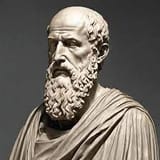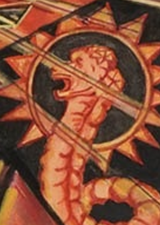>>24686836
>I'm not sure how familiar you are with the origins of Gnosticism, but does take a lot of influence from Platonic/Neoplatonic ideas
Just Platonic; Neoplatonism came at least a century later IIRC. And I'm not sure if Gnosticism borrowing from Platonism is strictly the right way to think about it. Instead I would suggest that maybe they used Platonic terminology to describe and develop their ideas just like orthodox Christianity did. E.g. there were supposedly earlier Gnosticisms that didn't use the word demiurge. Gnosticism's origins are still speculative, and to the extent that they borrowed from existing ideas, I wonder if some of their borrowing was from mystery cults about whom we otherwise don't know much, so it could serve as a window into lost ideas.
And there are some ideas in Gnostic texts that seem kind of eastern to me, though maybe they can be found in Greek philosophy as well? Like, from the Gospel of Philip:
"People cannot see anything in the other world unless they become it. That place is not like this world, where people see the sun without becoming the sun, see the earth without becoming the earth, and so on. In the realm of truth, if you see the Spirit, you become the Spirit; if you see Christ, you become Christ; and if you see the Father, you become the Father.
Though you see everything there is to see in this world, you do not see yourself. But in the other world, you see yourself, and you become what you see."
or
"Truth’s mysteries come to us through images and symbols. The bridal chamber, the holy of holies, is invisible to us. The curtain in front of it has concealed the workings of God, but when it is ripped and what it has been covering is uncovered, the building that contains it will be abandoned and demolished."










